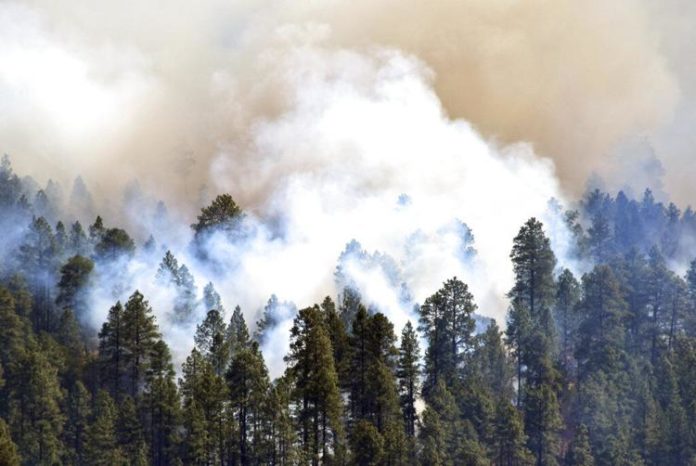
A man is appealing a nearly $300,000 federal judgment for starting a series of forest fires in northern Arizona.
Philip Alejandro Powers filed for a court appeal on Feb. 21 after being found guilty in the United States Court’s Arizona District earlier in the month for starting three forest fires in May 2018. Fronteras reports Powers is a Tempe resident.
Powers went hiking in the Coconino and Prescott National Forests when he got lost and signaled for help with three separate fires. One such fire grew into the Sycamore Fire, which burned 230 acres of national forest and encroached upon the Flagstaff watershed. The other two became the smaller Taylor and Sycamore 2 Fires.
The courts determined that Powers hiked without adequate water or food and had no alternative directions besides his phone’s GPS, which became useless as soon as he lost a cellular signal. He had packed 100 ounces of water for a two-day, 18.8-mile hike in an arid climate. The recommended intake for a hike such as that is 3 gallons of water.
Powers admitted in body camera footage that he continued his hike while knowingly leaving his second fire burning. The first fire was started in a location surrounded by brush, despite a fire ring being a few feet away.
“Had Powers engaged in adequate preparation in planning and carried adequate water, food, and gear, he would not have found himself in his circumstances,” U.S. District Magistrate Judge Camille Bibles said. “Thus, the court finds that Powers’ necessity defense fails as he created the conditions necessitating the commission of the fires, and his subsequent rescue.”
Powers seeks to challenge his sentence, citing the necessity for survival. The plaintiff argues he acted recklessly, with a lack of planning or guidance.
Powers’ sentence was already reduced during the initial court case. After he faced three and half years in prison for seven misdemeanors, he was instead charged on February 13 with seven years of probation and $293,000 in restitution payments to the National Forest Service. Totaling $200 a month, the indemnity goes toward the cost of air and firefighter resources used toward wildfire suppression.
“When a person fails to prepare for obvious dangerous conditions and then suffers the inevitable result, they cannot then avail themselves of the defense of necessity for the emergency that they created,” the plaintiff letter states.
Republished with the permission of The Center Square.













